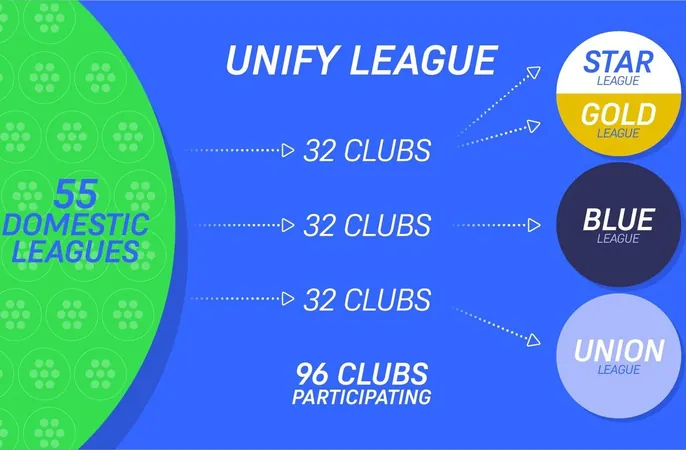
Shocking Suspension of Private Refugee Sponsorships in Canada Leaves Communities Reeling
2024-12-23
Author: Olivia
Introduction
The recent announcement from the Canadian government to suspend nearly all private refugee sponsorships has taken community groups by surprise, ending a vital avenue for resettling thousands since Prime Minister Justin Trudeau championed the cause to aid those fleeing the horrors of the Syrian war.
Government Announcement
On November 29, Immigration, Refugees and Citizenship Canada (IRCC) publicly stated that the decision aims to create more certainty for both refugees abroad and their sponsors in Canada. However, community leaders and advocates are sounding the alarm over the abrupt nature of the suspension, which has left many in a lurch, particularly those who were in the process of sponsoring family members.
Community Reaction
Vania Davidovic, a dedicated community member who has aided about 50 Syrian refugees over the years, expressed her disbelief at the announcement. "I have friends who were just on the brink of finalizing their sponsorships, with funds raised and applications completed. Now it’s all gone. They are devastated," she remarked, highlighting the emotional toll this decision has taken.
Background of the Program
The Private Sponsorship of Refugees program, operational since 1979, has a strong track record. It gained significant visibility in 2015, when Trudeau's government welcomed over 25,000 Syrian refugees. According to a recent IRCC report, over half of the 207,060 refugees admitted to Canada between 2016 and 2022 came via private sponsorships, with a substantial percentage being Syrian.
Criticism of the Suspension
Critics argue that the temporary halt disproportionately affects refugee aspirations. While government-assisted programs remain active, such programs reportedly offer limited support compared to private sponsorships. Davidovic noted, "Government-sponsored refugees often received almost no real help adjusting to a new culture. Many are left to navigate their lives with minimal guidance, which can lead to feelings of isolation and despair."
Legal Perspective
Prominent immigration lawyer Richard Kurland criticized the decision, asserting it sends "the wrong message at the wrong time," counter to Canada's historical role as a refuge for the displaced. He pointed to systemic delays caused by an overwhelmed Immigration and Refugee Board of Canada, which is struggling to manage its caseload—a situation exacerbated by inadequate funding despite increased government support.
Current Refugee Situation
The number of cases referred to the Refugee Protection Division has surged, leaving thousands in limbo. As a former refugee navigating the complex system, Basel Dakak shared his poignant experience. He advocated for private sponsorship as a lifeline, adding that the recent freeze "has absolutely shattered a lot of people’s hopes."
Call for Dialogue
Dakak, now established in Canada as a project coordinator for the Canadian Council for Refugees, emphasized the urgent need for constructive dialogue about the implications of such policies, particularly for individuals still grappling with fears and uncertainty abroad.
Impact on Communities
The pause on private sponsorships not only impacts potential newcomers; it reverberates across communities that have worked tirelessly to welcome and integrate refugees. Advocates urgently call for a reconsideration of this policy to restore faith in Canada's commitment to providing safety and hope to vulnerable populations worldwide.
Conclusion
This shocking development raises crucial questions: What does the future hold for Canada's refugee policies? And can the government restore confidence among the communities dedicated to supporting those in need? The time for answers is now.









 Brasil (PT)
Brasil (PT)
 Canada (EN)
Canada (EN)
 Chile (ES)
Chile (ES)
 España (ES)
España (ES)
 France (FR)
France (FR)
 Hong Kong (EN)
Hong Kong (EN)
 Italia (IT)
Italia (IT)
 日本 (JA)
日本 (JA)
 Magyarország (HU)
Magyarország (HU)
 Norge (NO)
Norge (NO)
 Polska (PL)
Polska (PL)
 Schweiz (DE)
Schweiz (DE)
 Singapore (EN)
Singapore (EN)
 Sverige (SV)
Sverige (SV)
 Suomi (FI)
Suomi (FI)
 Türkiye (TR)
Türkiye (TR)